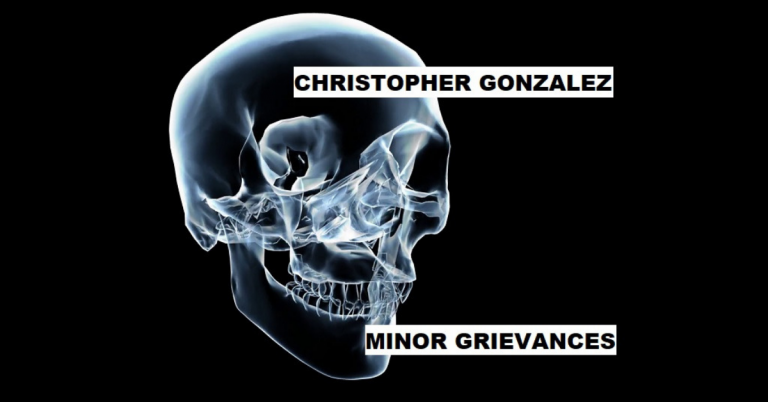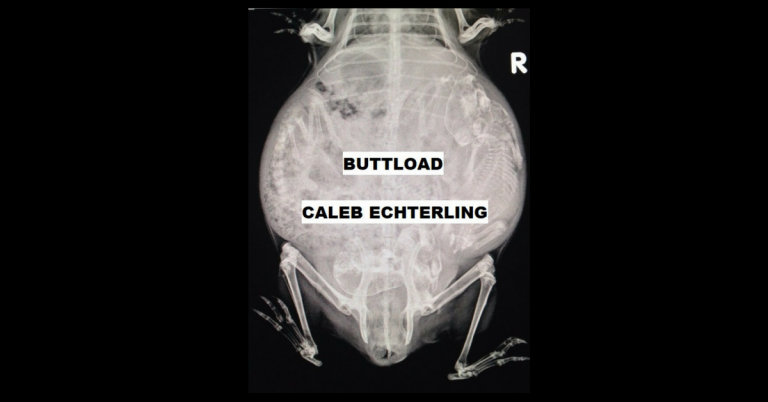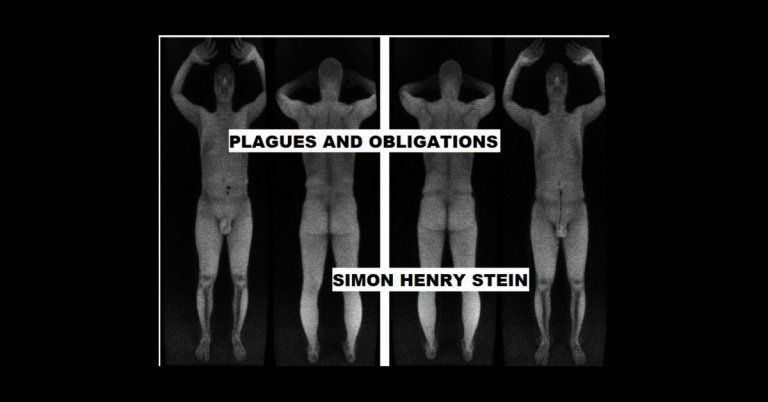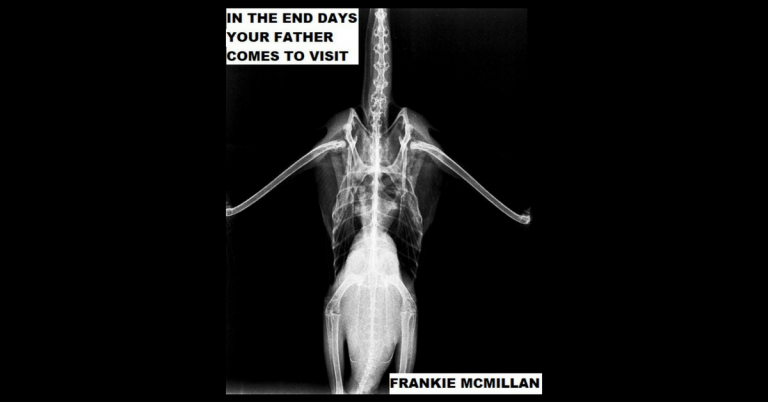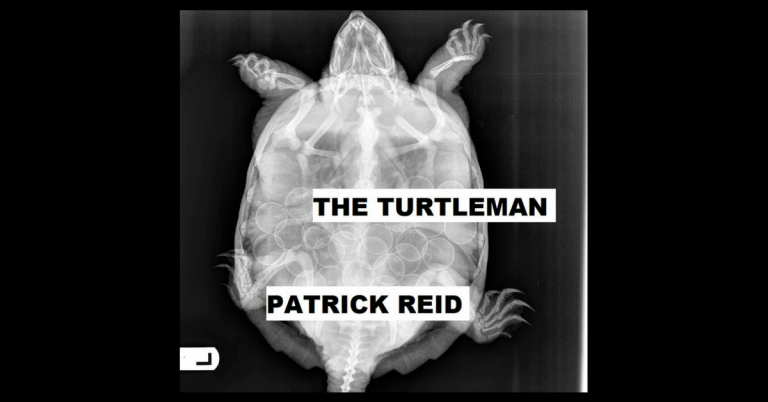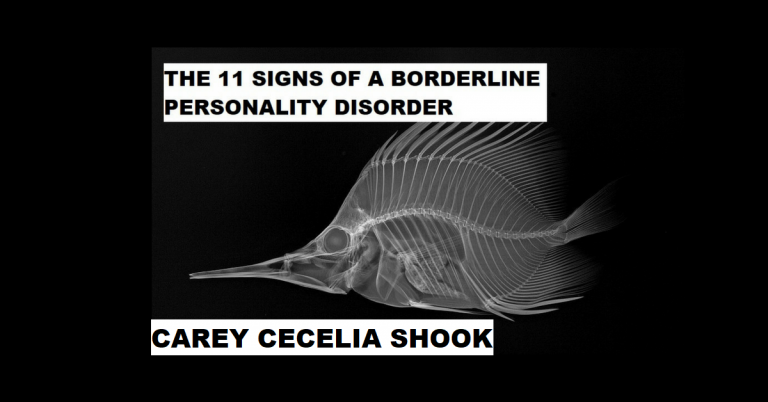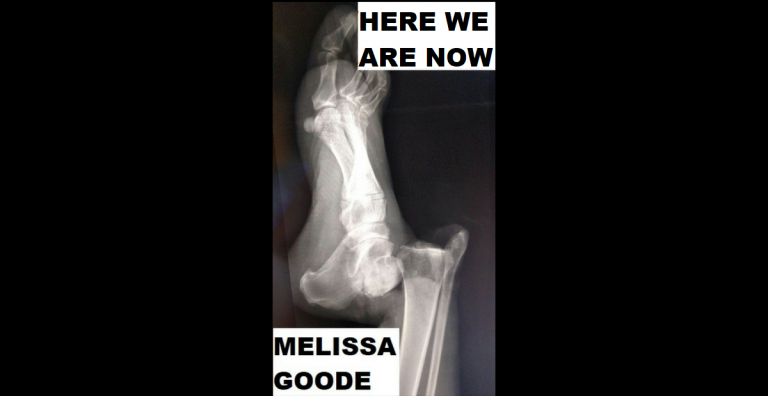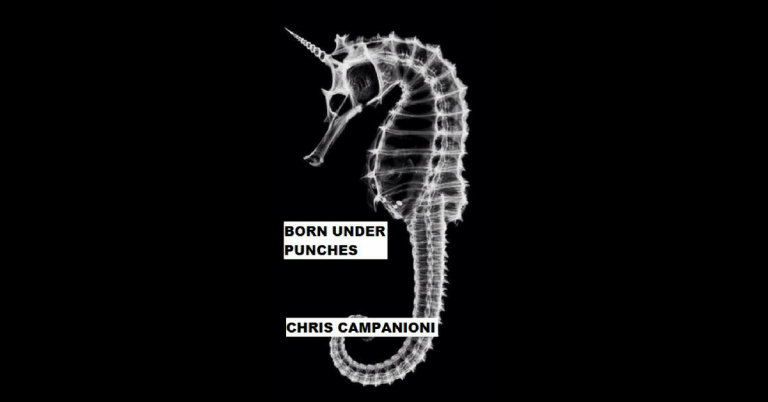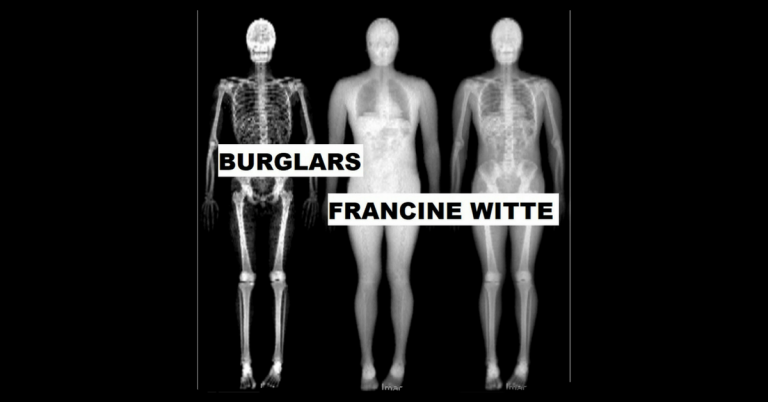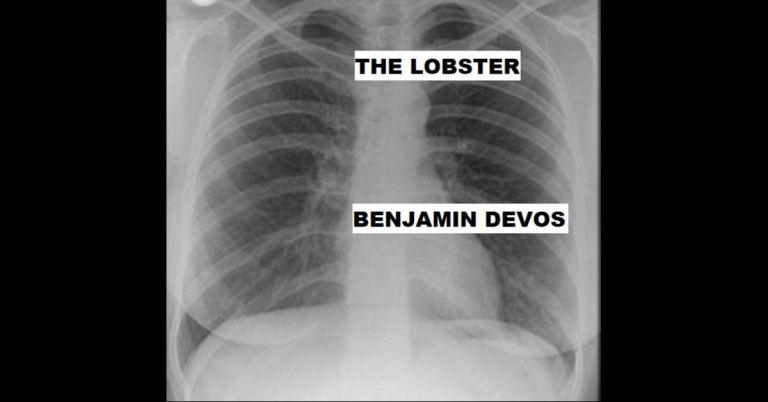
THE LOBSTER by Benjamin DeVos
I clock in at Pirate Cove and try to find a good place to hide.
I stay in the bathroom as long as possible.
Until my boss barges into the stall and tells me to get my ass in gear.
The shift’s starting.
The first table is always the worst because I’m not ready to act like a pirate.
I’m never ready to act like a pirate.
My first table is a father with his daughter.
“We are ready to order,” the father says.
“I want to get the best of the best.”
He’s young, but his hair is already starting to gray.
He’s wearing khaki pants with a shirt that has sweat stains forming on the armpits.
I want his life, to have something worth stressing for.
He orders lobster for himself and his daughter.
I write down his order on a pad of paper then stop.
“Arr sorry me matey,” I say. “There’s been no lobster for a wee fortnight.”
And I know this because we only get lobster at the beginning of the month.
Sometimes I serve the scraps from the back of the freezer, but I don’t want to ruin this family’s day.
“Lobster is our favorite,” he says, looking at his daughter.
“We’re out, me hearty,” I say, watching the daughter sink with disappointment.
“Darn,” he says, looking at the menu with intense focus.
“My apologies, wee lass,” I say, hobbling on my wooden peg leg to gain sympathy.
I imagine the man and me on a pirate ship together, and the man unable to cope with disappointing his daughter, jumping overboard with an anchor strapped to his waist, letting the weight carry him down until he sinks to the bottom of the ocean.
He’s still looking at the menu.
He says, “Well how about the crab, I bet that’d be as good,” trying to convince himself and his daughter.
He hands me their menus with a smile on his face.
“This meal should be excellent; we are a seafood-loving family.”
I want to tell him about the quality of the food, how most of it is frozen and reheated.
I don’t tell him about all of the complaints we get, how much food gets sent back for being sub-par.
Because he’s doing his best to give his daughter a great meal and I respect that.
“We love lobster,” he says looking at his daughter, “So we’ll come in next time it’s available.”
“Crab is good,” I say, taking the menus from him.
“It’s the best,” he says.
I say, “Lobster freaks me out; they’re like, the cockroaches of the sea. Every time I go to the beach, I try to avoid the lobsters.”
The father takes a long gulp of water.
“Yeah, we like our lobsters. They’re so delicious. It doesn’t matter what they look like; they’re good eating.”
“But they’re undeniably freaky looking,” I say, “Just like so weird.”
“Sure, but what animal isn’t weird when you truly think about it.”
He rubs his brow and looks at his daughter, whose posture is wilting like a dehydrated puppy.
“Well, monkeys look pretty normal,” I say, scratching the hairy area between my two pectoral muscles.
“True, they kind of look like people,” he says.
“Well, evolutionarily they are people,” I say, “They just haven’t become them yet.”
“We’re Christian,” he says.
“Oh, cool,” I say, “Does that mean you don’t believe people originated from monkeys?”
He says, “We believe people were born from Adam and Eve, and that humans have always existed.”
I cough.
I say, “I wonder if the first people were freaked out by all the different animals. Like they probably saw lobsters and were like, whoa, what are those things?”
“I don’t know,” he says.
“Probably,” I say. “And crab is pretty close to lobster, but they’re more like the spiders of the sea.”
I think about the man going to church and bowing down to a bloody cross on the wall, holding his palms together in a praying position, lifting them toward the ceiling and shouting something about how God has not provided enough lobsters, begging, pleading, for more lobsters to be born so that he and his daughter can eat them, rip them apart limb by limb, chewing on their flesh for sustenance, knowing that the Bible says that man has dominion over all creatures, so he can do whatever the fuck he wants, killing and consuming, tearing them apart with his teeth.
“Yeah, well we’re really hungry,” he says, sending a covert message with his eyes that he wants me to leave them alone.
I take a few steps backward before turning and wobbling on my prosthetic toward the kitchen.
The chef once told me that I take too long to bring him orders and that the customers become annoyed if they have to wait too long for their food.
I imagine myself with lobster claws for hands, pinching the chef’s jacket, and telling him that we all have to wait our turn in this life.
It feels good to be assertive.
I take a smoke break even though I don’t smoke.
I stand outside and let the wind hit me in the face.
Maybe I need to start smoking cigarettes again so that I can relax.
I used to smoke cigarettes with my older sister when she was sixteen and I was nine.
She would come home from school to babysit me, and I would ask her for a smoke, and she would give it to me.
It was fun.
Not the best, but still fun.
Just me and my big sis smoking.
The two of us would sit on the front porch in old rocking chairs looking at each other and rocking back and forth, with smiles on our faces and cigarettes between our lips.
For five minutes at least.
Then no more smiles.
Which is how I feel when I’m serving a table.
Five minutes, then no more smiles.
Just doing my job.
After serving my table their crab, which was just chunks of imitation meat over unseasoned pasta, I go over to the busser’s station to fold napkins.
I fold napkins whenever service is slow.
It’s my favorite thing to do at the restaurant.
I fold the napkins to be shaped like pyramids and place them in a row.
Sometimes I try new shapes, like a lotus, or a star.
I can do a swan, but it takes a lot of time, and I can only do one before continuing my pyramids.
I imagine starting a business with the sole purpose of folding napkins like origami and selling them back to restaurants for ten times the price of the actual napkin.
I examine the pyramid-shaped napkin and each unique fold that brings it together.
I feel like more of an architect than an artist.
I picture myself with a construction helmet on, watching as a group of laborers erect a giant pyramid out of a million napkins.
I think about the customer who will eventually use the pyramid napkin, and how enjoying the intricacies for more than a moment would be impossible, because the rules of society state that one must unfold the napkin, flatten it, then place it on one’s lap.
And how the flattening, the disassembly of the folds, is just another example of how humans destroy everything that they come in contact with.
Folding napkins helps me understand the world, makes me feel better about all of the destruction I’ve caused in my own life.
I look around at the customers in the restaurant and think about how in the end, we’re all the same.
We’re the destroyers.
My boss comes up to me from behind and says, “The little girl at your table just asked me why we’re out of lobster. We have too much lobster as it is. God, you are such a dipshit.”

